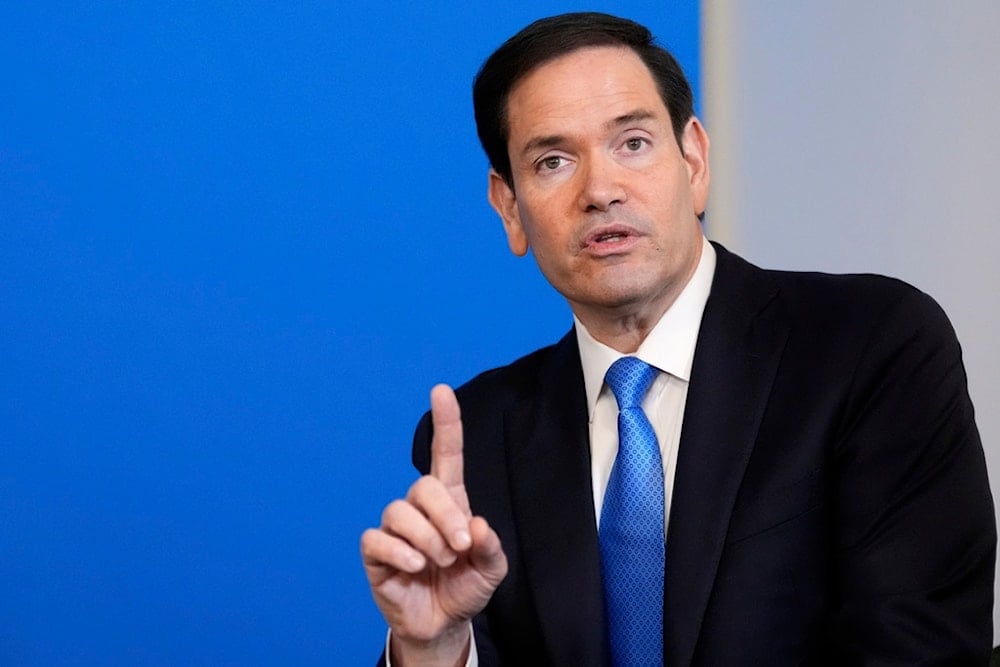Rubio says US sanctions on Russia may end dialogue prospects
The US Secretary of State cautions that introducing tougher sanctions would likely mean the window for useful talks with Russia would close.
-

Secretary of State Marco Rubio points during a meeting of President Donald Trump and NATO Secretary General Mark Rutte at the NATO summit in The Hague, Netherlands, Wednesday, June 25, 2025 (AP)
The imposition of US sanctions on Russia could effectively shut down any opportunity for diplomatic engagement with Moscow, US Secretary of State Marco Rubio cautioned.
In comments reported by Politico, Rubio highlighted that introducing tougher sanctions would likely mean the window for meaningful talks with Russia, particularly concerning a ceasefire in Ukraine, would close.
"If we did what everybody here wants us to do, and that is come in and crush them with more sanctions, we probably lose our ability to talk to them about the ceasefire and then who’s talking to them?" he was quoted as saying.
Read more: WH secretly pressing Senate to water down anti-Russia sanctions: WSJ
Sanctions would halt US-Russia negotiations
Rubio underscored that a decision by US President Donald Trump to enforce new sanctions on Russia would signal that diplomatic negotiations are not likely to resume in the near term.
The Secretary of State stressed the importance of maintaining diplomatic channels, despite increasing pressure to take a harder stance against Moscow.
"We’re going to continue to engage," Rubio said. "In the sense that if there’s an opportunity for us to make a difference and get them to the table, we’re going to take it."
Russia urges West to drop hostility, warns against NATO threat
On Monday, Deputy Foreign Minister Alexander Grushko said Russia does not view itself as an enemy of the West and remains open to dialogue, provided that the West abandons its confrontational stance toward Moscow.
In remarks to Russia’s RIA Novosti, Grushko emphasized that Moscow’s foreign policy concept is not guided by hostility. “We do not consider ourselves enemies of the West. We are ready for dialogue, but only if our opponents abandon their confrontational policy against Russia and halt eastward expansion,” he said. Grushko also underscored that any dialogue must be based on “sovereign equality and mutual respect for national interests.”
His comments come in response to NATO Secretary-General Mark Rutte’s recent suggestion that relations with Russia should eventually return to normal after the end of the Ukraine war. Grushko was skeptical of the prospect, saying Rutte’s vision represents “a very long-term perspective that is nowhere on the horizon yet.”
Earlier, in an interview for Bloomberg, Rutte stated that it is natural for Europe and the US to seek a gradual normalization of relations with Russia after the conflict concludes. “The war will have to fade eventually, and with it, so too must our estrangement,” he remarked.
Read more: Medvedev: Russia seeks victory, not compromise, in Ukraine peace talks

 3 Min Read
3 Min Read










